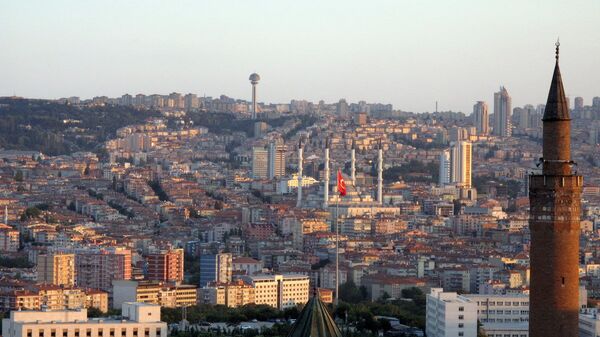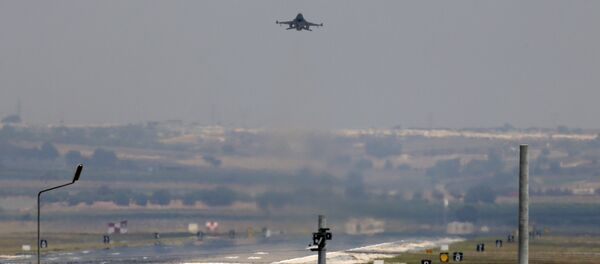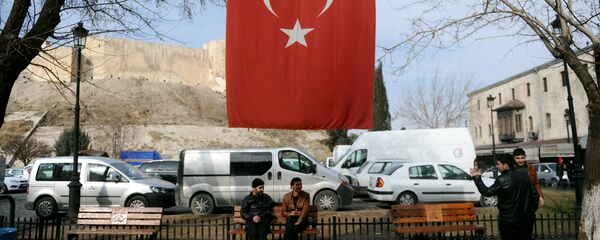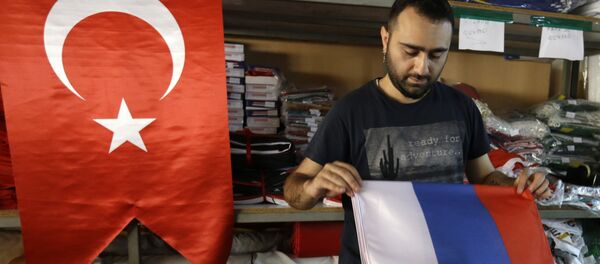"Turkey will no longer have such an opportunity. It should choose the axis of its further movement and stick to it without trying to flannel both sides at the same time," he said.
The journalist also noted that for Ankara, tackling the terrorist threat means developing a strong alliance with its regional neighbors and Russia. Otherwise, the terrorist threat which declared itself in full force in 2015, will continue to mount through 2017.
"Turkey should continue the normalization of its relations with Russia and the regional states, otherwise the problems, which Ankara will be facing with, will only snowball. In other words, Turkey no longer has an opportunity to cooperate with both Russia and the US in parallel. The issue is especially acute as Turkey should make its choice: either move towards a strong alliance with its neighbors in the region or follow the line of Americanization and pursue its previous policy towards Syria. Day by day we see only more clearly that the latter leads to a dead-end," Güller told Sputnik.
With regards to Syria, the journalist said that his home country has failed to demonstrate the required determination in solving the crisis.
"The first stage was based on the idea of toppling President Assad and bringing the Muslim Brotherhood to power, which has utterly failed," he said.
The second one, he continued, was aimed at toppling President Assad and conquering the north of Syria with the center in Aleppo. However it has never become a reality as well.
The next stage was aimed at resisting the creation of the Kurdish corridor backed by the US.
After the liberation of Aleppo from terrorists last month, we are now witnessing the transition from the idea of toppling President Assad towards attempts to maintain his presence in Syria, the journalist said.
"Thus the Turkish leadership tries to maintain its presence in Syria by cooperating with Russia and continuing its political bargaining with the US," he told Sputnik.
Mehmet Ali Güller noted that meanwhile, Turkey has become involved in the so-called process of "Pakistanization," which refers to the increasing ability of extremist and armed groups (at times supported by Turkey) to export violence from Turkey’s borders.
"We have found ourselves in the process of "Pakistanization" which had been applied by the US with regards to Afghanistan. Turkey has played its role in exporting terrorism to Syria, similar to the one which Pakistan once played to Afghanistan with the support of Arab organizations and the US. And now we are paying the price for it," the journalist said.
"Since 2011, Turkey has accommodated over three million Syrian refugees. Have all of them been properly registered?" he wondered.
Hence, he said, there is always a chance that there might be people involved in terrorist activities among them, especially given the fact that terrorists have been arriving into Syria via Turkey, their transfer point.
Nobody knows how many of them will return to their home countries from Syria and how many will prefer to stay in Turkey, he said.
Ankara should not also forget that the Free Syrian Army (FSA), which it has supported while the Syrian government considers it a terrorist organization, is constantly switching sides. FSA fighters have repeatedly betrayed Turkey before. It is absolutely unclear what to expect from it, he said.
During Turkey's "Arm and Instruct" project many of them have crossed the border and joined Daesh, the journalist said. Similar things can happen in future. And this threat should not be underestimated.
Therefore, Turkey should work out a complex and comprehensive strategy which should be based on a strong alliance with Russia and regional neighbors, the journalist reiterated.
Never miss a story again — sign up to our Telegram channel and we'll keep you up to speed!





